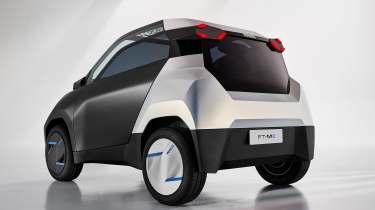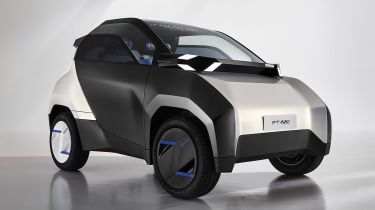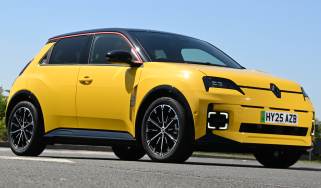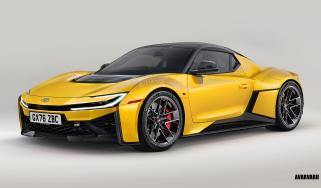Toyota FT-Me Concept gets Government support for limited UK production
New funding from UK government brings Toyota’s Citroen Ami alternative closer to production
Toyota is edging ever closer to revealing a production version of its FT-Me concept, thanks to newly announced UK government funding. The undisclosed sum will accelerate the “feasibility study for a lightweight battery-electric vehicle”, which will be led by Toyota Manufacturing UK in Derby.
The study will feature a consortium of partners including ELM Mobility Ltd – a designer and producer of purpose-designed, last-mile urban delivery vehicles. Savcor will help with the design and integration of the car’s solar roof, while the University of Derby will provide expertise in user behaviour and the viability of solar energy as a power source.
The result, Toyota hopes, will be a showroom-ready alternative to the Citroen Ami – a short-range, urban-focused, two-seat quadricycle based on this year’s FT-Me concept. The 2.5-metre show car claims to fit in half a parking space, designed for evolving cities that are becoming increasingly unfriendly to traditional vehicles.
The feasibility study will be undertaken at Toyota’s Burnaston facility, with outcomes tested at the University of Derby. The study will also “evaluate ways to optimise circularity” using recycled materials, while also looking at economies of scale using components common to ELM’s lightweight, last-mile delivery vehicle.
Back in March, at the reveal of the FT-Me, Toyota Motor Europe’s head of new mobility, Stijn Peeters, told Auto Express: “This is an opportunity to provide customers with something a bit different. It’s more affordable, sustainable, safer, flexible and aspirational.”
Toyota quoted a range of at least 100km (62 miles) and a top speed of 45km/h (28mph) limited by quadricycle legislation. “It’s not that users will be doing 100km per day, but they don’t want to be constantly recharging,” said Peeters when questioned about the battery technology.
He wouldn’t be drawn on specific pricing, but said the car is competing with “people paying 50 Euros [£43.50] a month for a phone or 15 Euros [£13] for Netflix, so it can’t cost 300 Euros [£260] a month”.

Private customers, young people and those needing a second car for urban use will all be targeted as potential buyers. “We need to create a super-funky car that might work for teenagers, but we need everyone to be attracted to this little gem,” said Peeters. Its quadricycle status means that in some markets, people as young as 14 would be able to drive it.
The concept car’s passenger seat is removable to free up space for a dog, folding bike or wheelchair. This also liberates a useful 1.6-metre load length, while connectivity is also pinpointed as crucial.
“A small car does not mean you should go down in technology; hyperconnectivity is integral and the smartphone would be your key and infotainment system, seamlessly integrated into your car,” explained Peeters.
Fancy something small but not as compromised as a quadricycle? Check out the latest lease deals for the quirky Dacia Spring through the Auto Express Buy A Car service. You could have one on your driveway for as little as £121 per month…








